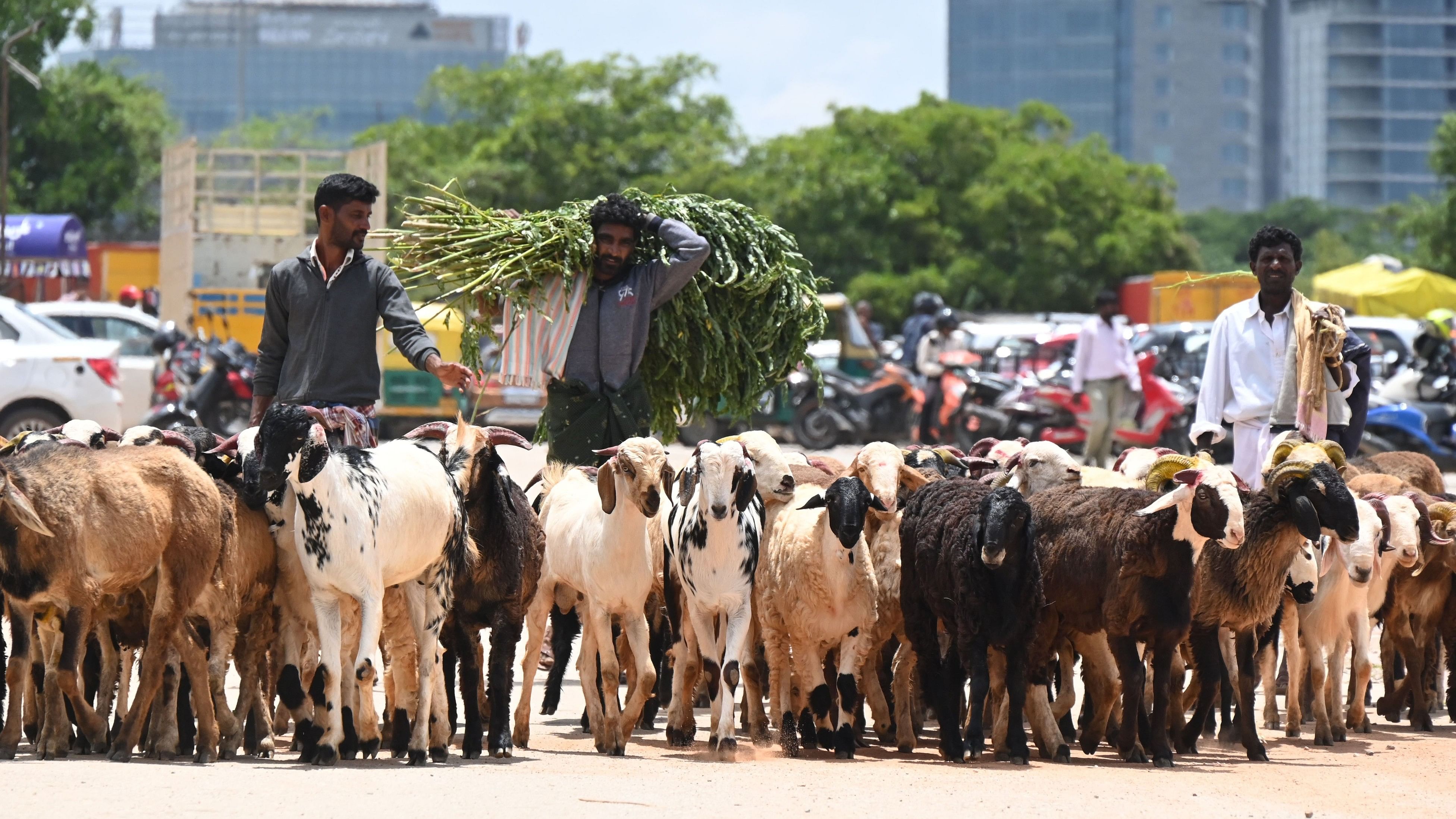
Sheep farmers at Palace Ground. Bakrid (Eid al-Adha) will be celebrated on Monday.
DH PHOTO/BK Janardhan
Bengaluru: Millat Management Committee of India, a local NGO, is developing an eco-friendly model slaughterhouse to tackle the increased animal waste during Bakrid (Eid al-Adha) celebrations.
The NGO demonstrated the still-nascent concept last week at the Haj Bavan in Yelahanka, adopting environmentally responsible slaughter practices. Made of eco-friendly materials, the temporary slaughter sheds are designed for easy mobility. It helps manage the animal waste effectively by minimising pollution and conserving resources.
Mohammed Azam Shahid, general secretary of the NGO, said that managing water resources and proper waste disposal methods are crucial to maintain sanitation and environmentally friendly practices in the temporary sheds.
“Local authorities must facilitate smooth and humane execution of the Eid al-Adha rituals, with designated areas and trained professionals deployed to perform the sacrifices in accordance with religious traditions,” Shahid said.
The NGO also offers a temporary slaughterhouse location map suggesting places near sewage treatment plants (STPs) where these slaughterhouses could be set up. He also suggested that the animals’ blood and tissue will be covered in yellow PVC covers and given to biomedical waste.
Shahid assured that this model will be both environmentally sustainable and the safest way for the community to practice their rituals. Also, it helps maintain high cleanliness standards, the safest way to dispose waste, and train workers to avoid exposure to hazards, while conforming to local health and safety regulations.
If this practice were to be implemented across the city, coordination between civic agencies and Residents Welfare Associations (RWAs) is crucial, he said.